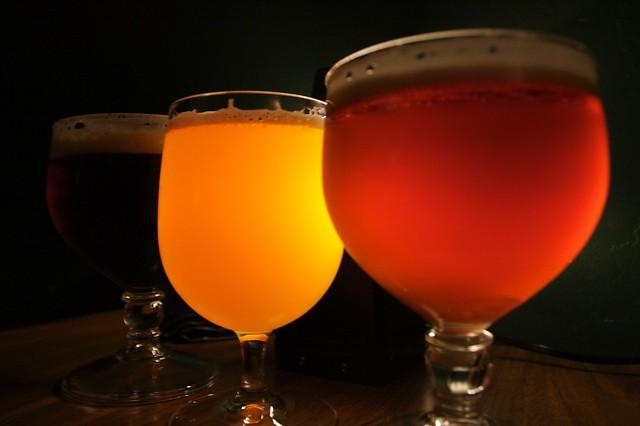
The beat
New Zealand police partner with Chinese counterparts
Police from Auckland and the Chinese city of Guangzhou have partnered for a training and information- sharing exercise in New Zealand. Concerns have been raised over the ability of the foreign police to access classified information, but NZ police say that no confidential information will be shared and no operational duties will be undertaken by the Chinese officers. The partnership comes amid continued debate over foreign influence in New Zealand.
Mistakes made by Scottish police revealed
In Scotland, the conservative opposition has released an analysis of records that reveals that police made almost 200 ‘serious’ mistakes in the line of duty over an 18-month period. The mistakes involved a wide variety of incidents such as attending the wrong address and dismissing urgent incidents as false alarms. While the mistakes made up only 0.006% of calls handled by police, the Tories want the governing Scottish National Party to better fund police to minimise the chance of errors.
New wheels for French police
French police are trialling electric scooters in the town of Honfleur in northwestern France as a way of combating street crime. The scooters, which have a range of 30 kilometres and can travel at up to 25 kilometres an hour, will enable officers to reach incidents more quickly than officers on foot. The scooters themselves are modelled on US Army scooters used during the landings at Normandy and have large tyres for a smooth ride over rough ground.
Checkpoint
African migrants protest on US–Mexico border
Hundreds of African migrants have been protesting in Mexico at a border crossing into Laredo, Texas. The protesters allege that they haven’t been helped by US or Mexican authorities in their attempt to seek asylum in the US, and that other migrant groups have been favoured over them. US officials responded by saying that Laredo’s port of entry facilities weren’t designed to hold large numbers of asylum-seekers.
UK intercepts migrants crossing English Channel in dinghies
The UK Border Force intercepted 26 migrants in two dinghies off the coast of the English county of Kent. The group was made up of Iraqis and Iranians, and its members have been sent for further assessments in hospital before they’re interviewed by immigration officers. At least 564 migrants have made the English Channel crossing in small boats since November last year.
Sneaky beer trading practices busted by European Commission
Belgium-based beer company Anheuser-Busch InBev has been fined by the European Commission for stopping cheaper beer imports from crossing the border from the Netherlands into Belgium. AB InBev was hit with a €200 million (A$324 million) fine after a three-year investigation into its Jupiler brand, which has a market share of 40% in Belgium. The company’s strategies included removing French information on labels on beer to make it harder to sell in Belgium and restricting beer sold to wholesalers in the Netherlands.
CT scan
Terrorism fears in Indonesia ahead of election results
Indonesian authorities are on alert for a terrorist attack when the results of the country’s presidential election are released. It’s expected that incumbent Joko Widodo will be announced as the winner and that supporters of the challenger, Prabowo Subianto, will protest the result. Intelligence has revealed plans to detonate bombs during such protests. More than 32,000 troops are being deployed in Jakarta in an attempt to quell the threat.
Militants claim responsibility for Pakistan hotel attack
The Balochistan Liberation Army has said that it was behind a terrorist attack at a hotel in Gwadar, Pakistan. Four hotel workers and a navy soldier were killed. Before they opened fire inside the hotel, the attackers had planted bombs at entrances and disabled CCTV cameras. The Balochistan Liberation Army, which seeks greater autonomy for the Baloch people in southern Pakistan, is listed as a terrorist organisation by Pakistan and the UK.
Saudi oil facilities hit by drone attack
Houthi rebels have used drones to attack Saudi Arabia’s oil facilities, saying they acted in response to the kingdom’s role in the ‘genocide’ in Yemen. The Saudi energy minister said the attack caused little damage, but called it an act of terrorism that threatened not only Saudi Arabia but also the ‘safety of the world’s energy supply and the global economy’. While oil production wasn’t interrupted, oil prices rose sharply when news of the attack broke.
First responder
UN secretary-general pushes for Pacific climate action
UN Secretary-General Antonio Guterres is stepping up efforts to tackle climate change, making a historic visit to the Pacific region. At a meeting with Pacific Islands Forum leaders, Guterres said Pacific island nations have the ‘moral authority’ to demand action on climate change. He warned of what he sees as a paradox that the political will to prevent a climate crisis appears to be fading while the situation for many is worsening.
‘Unprecedented’ flu outbreak continues
Delayed access to the flu vaccine is being partly blamed for an unusual increase in the number of flu cases in Australia. Across the country, there were triple the number of influenza cases in the first four months of 2019 compared with the same period last year. In South Australia—where 12,339 cases have been reported compared with 1,348 at the same time last year—an emergency meeting has been held between doctors and members of the Immunisation Coalition.
Plastic found in the Mariana Trench
American deep-sea explorer Victor Vescovo has discovered a plastic bag and sweet wrappers at the bottom of the Mariana Trench, the ocean’s deepest point. The dive set a new world record of 10,927 metres, beating the previous record by around 11 metres. But it also highlights the extent of plastic pollution in the world’s oceans. The plastic found will be added to Japan’s deep-sea debris database, which keeps track of various objects found on the seafloor. A recent British research paper found that ocean trenches are at risk of becoming ‘the ultimate sink for this debris’.